As a health coach supporting men and women—including many runners—in achieving their health and fitness goals, I’ve heard of just about every diet out there. My clients frequently come to me after reading an article on Facebook or their favorite fitness website wondering if diet X or Y would work for them for weight loss or for better running performance.
Let’s take a look at the top diets I heard about in 2017.
The Anti-Inflammatory Diet (aka the Tom Brady diet)
When a high-performing athlete and his supermodel wife share the details on their unique diet, people listen. The Anti-Inflammatory Diet Tom Brady espouses is a highly restrictive way of eating that aims to nourish well, while eliminating any inflammation in the body that would hinder performance.
Pros: It includes plenty of vegetables, some whole grains, lean protein and water (SO MUCH WATER), and it excludes unhealthful processed foods.
Cons: Tom has a fulltime chef spending an inordinate amount of time shopping farmers markets and creatively preparing his meals. It includes a looooong list of no-no’s: No white flour, zero added sugars, no coffee (or caffeine of any sort), no mushrooms, fruit is highly restricted, and no nightshade vegetables. Nightshades is a somewhat scary-sounding name for a class of vegetables including tomatoes, eggplant, peppers and potatoes, as well as many more inedible plants.
There is ZERO scientific data supporting the statement that edible vegetables in the nightshade family cause inflammation. However, with plenty of fiber, nutrients and antioxidants, these vegetables do have proven, powerful health benefits for individuals of all activity levels. (Of course, if blood tests taken by a doctor reveal an allergy, or if you experience discomfort or illness after eating these foods, by all means, avoid them.)
The verdict: The highly restrictive nature of this diet makes it nearly impossible to adhere to unless you have a full-time chef, not to mention the will power of a professional football player. But more importantly, many of the restrictions are not backed up by science and likely not worth sticking with.
Ketogenic Diet (see also Atkins diet and Low Carb, High Fat diet)
Often described as a “fat-burning diet,” a ketogenic diet is one that all but eliminates carbohydrates in favor of high fat foods. Butter in your coffee, a bun-less cheeseburger, and bacon-wrapped cheese are all welcome on this diet. Without its preferred source of energy available—glucose from CARBS!—your body goes into starvation mode called ketosis, and your liver turns fat into ketones for fuel.
Pros: This diet was developed in the 1920s to successfully treat epilepsy in children whose disease did not respond to drugs, and further studies are underway regarding treatment for neurological diseases. The diet restricts some foods known to be unhealthful, including refined grains, fried foods and added sugars. All of us have hours and hours of fat to burn, and if there is a way to tap into those stores as opposed to 90-120 minutes worth of stored carbohydrate, that’s certainly appealing to endurance athletes. There is anecdotal evidence of athletes experimenting with a high fat diet and reporting adapting to working harder without reliance on carbs. This diet also frequently results in weight loss when someone begins the regiment (though much of this initial loss is water weight lost as the body burns through its carbohydrate stores, which also store water).
Cons: No beating around the bush: This diet is extreme. The initial adaptation to this diet can be brutal, even gaining its own nickname, “keto flu.” Running in a low carb state can be excruciating—ask anyone who’s ever “bonked” in a marathon.
The diet eliminates health-promoting fruit, starchy vegetables, whole grains and beans, which can lead to deficiencies in important vitamins and minerals (is it a matter of time till we see the resurgence of scurvy?!). This diet can also negatively impact blood cholesterol and triglycerides, though it does not do so for everyone. Consumption of carbohydrates allows for storage of water in our bodies, so the state of ketosis easily leads to dehydration as well as electrolyte loss, a special concern for runners.
Verdict: The risk and difficulty of maintenance outweigh potential benefits which are as-yet-unproven (unless you are using the diet to treat epilepsy). On the other hand, survey of the highest-performing runners on earth demonstrates carbohydrates comprise 50% (or more) of these athletes’ diets.
A note: Middle- and long-distance runners may gain some of the fat adaptation benefits of the ketogenic diet by performing fasted runs as one component of their training program, detailed well by Matt Fitzgerald in his book The Endurance Diet.
Vegan Diet
A vegan diet is one that eschews all animal products: No red meat, poultry or seafood; no dairy, eggs, gelatin or honey. (These choices also extend to a vegan’s lifestyle, where they avoid animal-derived products like wool, leather and more.) A vegetarian diet excludes all animal flesh, but depending on the individual, may have more flexibility to include animal derived products, like dairy or honey.
Pros: From an ethical standpoint, a vegan diet is a compassionate choice, and there are tremendous environmental benefits to eliminating or even reducing meat consumption. A well-planned vegan diet can easily support the energy needs for the active runner.
Cons: Other than the exclusion of animal products, there are no other parameters around this way of eating, so being vegan is not synonymous with being healthy. In fact, there is a tremendous range of heavily marketed vegan junk food, from cookie dough to highly sweetened yogurt alternatives, to boxed mac and cheese. New vegans often need to do diligent research to make sure their diet adequately meets their needs, including whether they need to supplement with vitamin B-12, iodine or other vitamins or minerals. Additionally, if one chooses this diet without a supportive network of family or friends, it can be socially isolating.
Verdict: If you’re driven by a strong motivation to choose this lifestyle, and if you’re willing to do a bit of extra homework to make sure your nutrition needs—as well as social and emotional needs—are adequately met, veganism can be a healthful choice that supports an active lifestyle. As with any diet, it’s important to consume mostly whole foods, including plenty of fresh produce and whole grains. And when the inevitable question, “Where do you get your protein?” comes up, a healthy vegan’s answer will sound something like, beans, nuts and seeds, whole grains, whole soy foods (like edamame and tempeh).
This post should not be construed as professional medical advice, diagnosis or treatment. Contact your physician before starting any exercise program or diet.
Join Lauren for a special nutrition talk at Charm City Run Fells Point on February 8th - Can Runners Thrive on a Plant-based Diet?
About the Author: Lauren Shafer
Lauren is a certified Health Coach who helps busy Baltimoreans articulate their health + wellness goals, and make measurable, sustainable diet and lifestyle changes for lasting transformation. Though she would never be described as athletic in her youth, Lauren started running as an adult, begrudgingly at first, until she discovered she actually enjoyed it. Now an 10-time marathoner, 4-time ultra-marathoner and Boston Marathon qualifier, you’ll frequently find Lauren running on roads and trails with her husband John and dog Osita.
To learn more about Lauren and check out her health coaching and blog, visit www.live-full.com or www.facebook.com/LiveFullBaltimore. Contact her at lauren@live-full.com.



